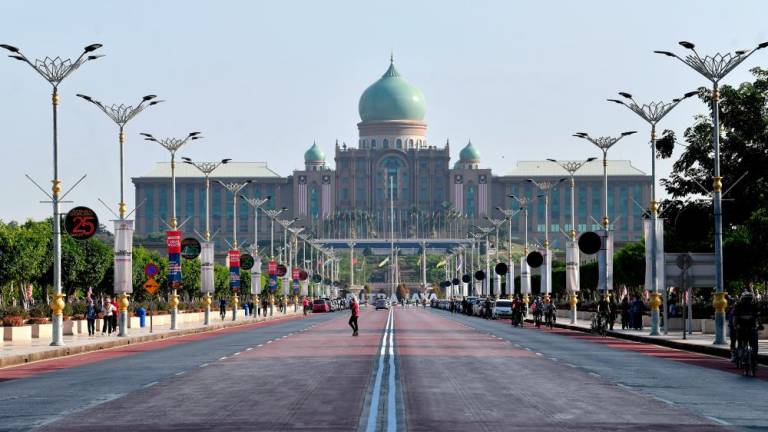KUALA LUMPUR: Business and industrial ecosystems need to be restructured to meet the needs of the future with the adoption and application of digital and innovative technologies, coupled with effective management and high value–added skills of the local talents, said Prime Minister Tun Dr Mahathir Mohamad (pix).
He said there was a need for the government to look at new sectors to boost growth.
“This is a window of opportunity for us to improve partnership between Malaysia and Japan,” he said in his keynote address at the 37th Malaysia–Japan Economic Association (Majeca) and Japan–Malaysia Economic Association (Jameca) joint conference here today.
Themed “Expanding Trade and Investments between Malaysia and Japan in the Innovative Technologies Sectors”, the joint conference seeks to explore ways to introduce specific measures to promote technological renovation and innovation within the region.
Dr Mahathir also said that Malaysia worked closely with its neighbouring countries to promote regional development.
Investing in Malaysia will also help Japan to expand its market into the Asean region and the country, he said, and put high hopes on investment from Japan into high–tech fields and areas which could contribute to developing the manufacturing sector, as well as cultivation of human resources.
“Between then (last conference) and now, the Malaysian government has shown its commitment in establishing a business–friendly framework based on the rule of law.
“We have spent the better part of the year rebuilding our fiscal policies, revising our economic strategies and restoring some semblance of order over a heap of an unprecedented corruption mess created by the previous administration,” he said.
He added that Majeca and Jameca were essentially private sector institutions which originated from the call of the governments of Malaysia and Japan for greater interaction between the two nations.
This will without doubt helps garner and galvanise investment flows and trade between Japan and Malaysia and results in Japan becoming among the biggest investors in Malaysia, and in turn contributing much towards making Malaysia a leading electrical and electronics goods exporter.
“The fact that there are more than 1,500 Japanese companies operating in Malaysia is testimony to the success of the Malaysia–Japan collaboration.
“However, global trends in trade and industrialisation are changing rapidly. Malaysia’s competitiveness in terms of earlier strategic advantages need reassessment.
“Coupled with the fact that there is an emphasis on the various aspects of digital economy and the impact of Industrial Revolution 4.0 (Industry 4.0), there is a dire need to review past successes for us to devise future strategies,” he said.
The prime minister said Malaysia had already taken serious steps in embracing Industry 4.0 under the Malaysian blueprint — National Policy on Industry 4.0 or Industry4WRD (Industry Forward) as prepared by the Ministry of International Trade and Industry.
Since the launch of Industry4WRD on Oct 31, 2018, the government has committed RM210 million from 2019 until 2021 to support the transition and migration to Industry 4.0.
This is an overall Industry4WRD fund, where targeted efforts will be rolled out for human capital development, technology adoption and infrastructure upgrade which will be the foundation to drive Industry 4.0 in the country. — Bernama














